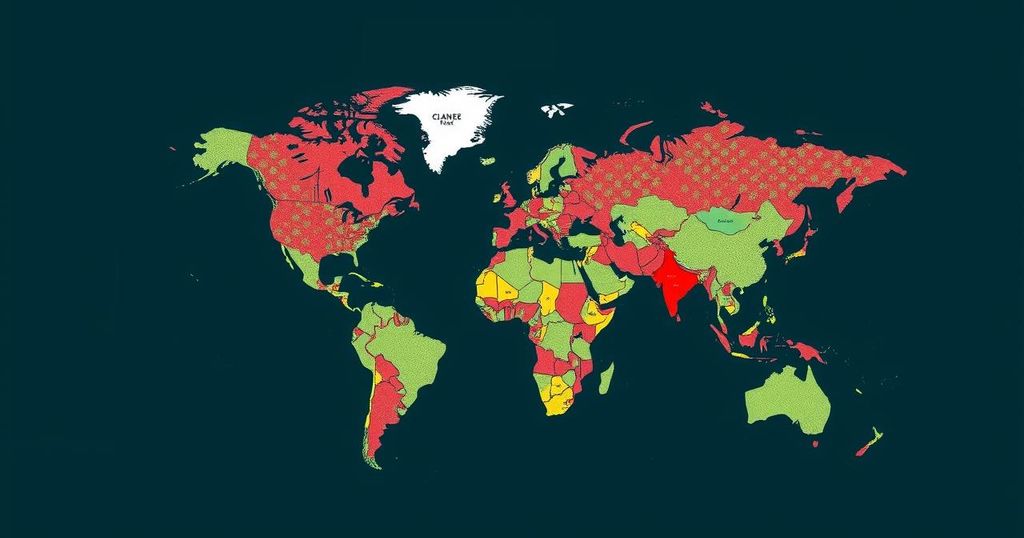Developing Nations Reject Insufficient $300 Billion Climate Finance Deal

Developing countries have criticized the approved $300 billion climate finance deal as woefully inadequate in addressing their climate challenges. Leaders from nations like India and Nigeria expressed their disdain for the commitment, emphasizing a need for more substantial support than the agreed-upon amount.
Developing countries have expressed strong discontent with a recently approved climate finance agreement, deeming the $300 billion annual pledge from wealthier nations as grossly inadequate. After two weeks of arduous negotiations at the COP29 Climate Conference in Baku, Azerbaijan, representatives from nearly 200 nations formalized this financial commitment, which was criticized immediately upon announcement. Indian representative Chandni Raina characterized the agreement as an “optical illusion” that fails to address the pressing climate challenges. Similarly, officials from Sierra Leone and Nigeria labeled the financial offer an “insult” and indicative of a lack of goodwill from affluent nations.
This climate pledge, intended to assist impoverished states grappling with the escalating impacts of climate change, falls short of the anticipated $390 billion that experts believed would represent a more equitable contribution. For nations like the Marshall Islands, the situation is dire. While some, like Tina Stege, felt that although the deal is insufficient, it is at least a beginning, there remains a palpable sense of betrayal among the Least Developed Countries—collectively expressing that the agreement does not progress efforts to curb global warming. UN Secretary-General Antonio Guterres hoped for a more ambitious resolution, urging countries to perceive the deal as an initial step rather than an end goal.
Moreover, the COP29 talks struggled to reconcile disparities between developing countries, which bear the brunt of climate change effects, and developed nations historically responsible for greenhouse gas emissions. Many developing nations hoped for significant financial backing, but the discussions faced roadblocks exacerbated by geopolitical tensions and economic constraints. Wealthy nations acknowledged these challenges yet remained committed to increasing financial contributions. However, the agreement did not include pivotal commitments such as the notable transition away from fossil fuels, which had been a focal point at COP28.
The climate deal emerged from COP29, which took place amid increasing climate crisis pressures that have disproportionately affected poorer nations. Developing countries, which contribute less to global emissions, have long called for greater financial support to combat climate-related impacts. The $300 billion proposed is a fraction of what many advocates believe is necessary and reflects ongoing struggles to bridge the financial gap between developed and developing nations. With the world focused on limiting global temperature rise, the stakes for the most vulnerable regions are extraordinarily high, necessitating serious financial obligations from historically accountable polluters.
In conclusion, the recent climate deal has sparked significant backlash from developing nations, who view the $300 billion pledge as insufficient. The agreement reflects a critical moment in climate negotiations, but it also underscores the persistent tensions between developed and developing countries over financial commitments and effective climate action. As the world grapples with escalating environmental crises, the reactions from poorer countries suggest that far more robust and meaningful financial support is required to truly address these challenges moving forward.
Original Source: jordantimes.com






